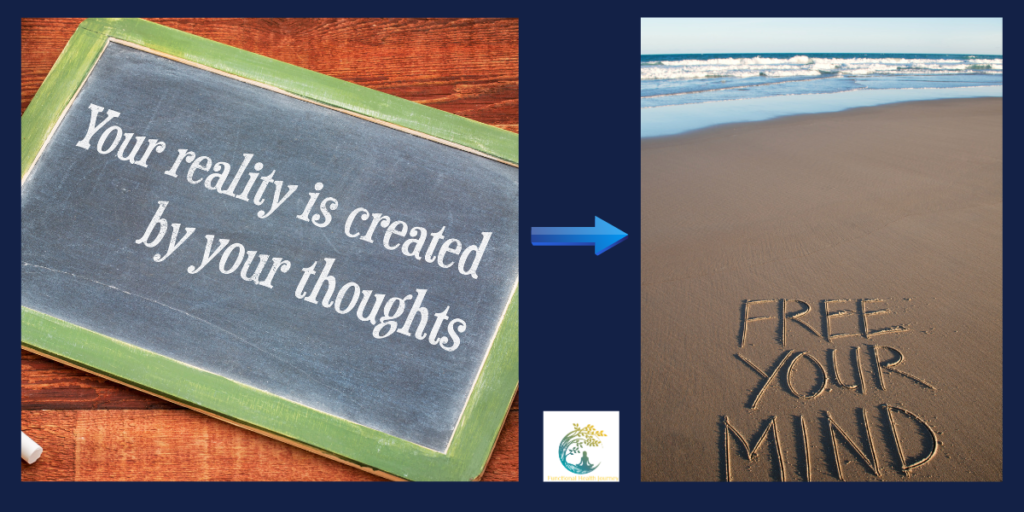Introduction
In the pursuit of a healthier and more fulfilling life, we often focus on external factors such as diet plans, exercise routines, and lifestyle changes. While these are undoubtedly important, there’s a crucial element that often gets overlooked: our mindset. Our mindset—the way we perceive the world, ourselves, and our capabilities—plays a pivotal role in determining our motivation for change, our actions, and ultimately, our health outcomes. In this blog post, I will explore mindset psychology, how our mindset influences our habits and behaviors, and discuss practical strategies to cultivate a mindset that fosters lasting change.
Understanding the Power of Mindset
Mindset is the lens through which we view the world. It encompasses our beliefs, attitudes, and assumptions about ourselves and our surroundings. Psychologist Carol Dweck popularized the concept of mindset, identifying two primary types: fixed mindset and growth mindset. Additionally, Alia Crum’s research at Stanford highlights that mindsets does more than just shape our behaviors—they can affect our physiological responses, indicating that mindset has a direct influence on health outcomes.
Fixed Mindset
A fixed mindset is characterized by the belief that one’s abilities, intelligence, and talents are static and cannot be developed. People with this mindset often perceive challenges as risks to their self-worth and tend to be apprehensive about failure. Consequently, they might avoid taking risks or exploring new opportunities, fearing that their shortcomings could be revealed.
Growth Mindset
Conversely, individuals with a growth mindset believe that their abilities can be developed through dedication, effort, and perseverance. They see challenges as opportunities for growth and embrace failure as a natural part of the learning process. With a growth mindset, they are more likely to take on challenges, seek feedback, and persist in the face of setbacks.

The Impact of Mindset on Health
Our mindset profoundly influences our health behaviors and outcomes in several ways:
Motivation for Change
People with a growth mindset are more motivated to adopt healthy behaviors because they believe in their ability to change and improve. They see setbacks as temporary and feel more confident about overcoming obstacles, which fuels their determination to keep moving forward.
Habits and Behaviors
Our mindset shapes the habits and behaviors we engage in on a daily basis. Someone with a fixed mindset might view exercise as a chore, leading to inconsistent habits. However, someone with a growth mindset might view exercise as a way to challenge themselves and improve, resulting in more consistent habits.
Health Outcomes
Studies have shown that mindset can have a significant impact on health outcomes. For example, research has found that individuals with a positive outlook on aging tend to live longer and have better physical and mental health as they age. Similarly, patients with chronic illnesses who adopt a proactive mindset and actively participate in their treatment tend to experience better outcomes than those who adopt a passive mindset.
Alia Crum’s research, particularly in “Mind over Milkshakes,” demonstrated that the mindset surrounding food consumption can influence physiological responses such as ghrelin levels, a hormone related to hunger. This suggests that our beliefs and expectations about what we’re eating can alter our body’s physical response. Similarly, her work on stress mindset reveals that how we perceive stress can affect our health, with those who view stress positively experiencing different physiological outcomes compared to those who view stress negatively.
Identifying Mindset Barriers
Now that we understand the importance of mindset in shaping our health and well-being, it’s essential to take a closer look at our own mindset and identify any barriers that may be holding us back. Here are some common mindset barriers to be aware of:
Limiting Beliefs
We all have beliefs about ourselves and our capabilities that may not be serving us well. These limiting beliefs can hold us back from reaching our full potential and lead to self-sabotaging behaviors. For example, if we believe that we’re not “athletic” or “good at cooking,” we may avoid trying new physical activities or experimenting with healthy recipes.
Fear of Failure
Fear of failure can paralyze us and prevent us from taking risks or trying new things. It’s essential to recognize that failure is a natural part of the learning process and an opportunity for growth. By reframing failure as feedback rather than a reflection of our worth, we can overcome this fear and take bold steps towards our goals.
Negative Self-Talk
The way we talk to ourselves significantly impacts our mindset and overall health. Negative self-talk, like “I can’t do this” or “I’ll never feel better,” can erode our confidence and hinder our motivation to improve our health. By embracing self-compassion and fostering a more positive inner dialogue, we can enhance our sense of resilience and cultivate a healthier outlook.

Moving Forward: Cultivating a Growth Mindset
Now that we’ve identified some common mindset barriers, let’s explore practical strategies to cultivate a growth mindset and unlock lasting health and happiness:
Embrace Challenges
Instead of shying away from challenges, lean into them as opportunities for growth and learning. Whether it’s trying a new exercise class, learning a new skill like meditation, or making dietary changes, approach challenges with curiosity and a willingness to learn from both successes and setbacks.
Adopt a Learning Mindset
Think of life as a continuous journey of learning and growth. Look for opportunities to broaden your knowledge, acquire new skills, and challenge yourself to take small, actionable steps toward achieving positive change. Keep in mind that growth requires time and effort, so be patient with yourself as you work toward your goals.
Practice Self-Compassion
Be kind and gentle with yourself, especially when facing setbacks or obstacles. Treat yourself with the same kindness and understanding that you would offer to a friend facing a similar challenge. Remember that perfection is not the goal—progress and growth is what we strive for.
Surround Yourself with Supportive People
Surround yourself with people who uplift and inspire you to be your best self. Seek out friends, family members, mentors, and community groups who share your values and support your goals. Their encouragement and support can provide invaluable motivation and accountability on your journey towards lasting health and happiness.
Cultivate Gratitude
Practicing gratitude helps you focus on what you have rather than what’s missing. Each day, take a moment to reflect on the things you’re thankful for, whether it’s your improving health and wellbeing, your relationships, achievements, or the small joys in life. Developing an attitude of gratitude can create feelings of abundance and satisfaction, making life more enjoyable and fulfilling.

Conclusion
In the pursuit of wellbeing and good health, mindset serves as the compass that guides us towards transformation. By fostering a growth mindset, embracing challenges, and practicing self-compassion, we can overcome the limiting beliefs, fears, and negative self-talk that hold us back from reaching our full potential. Remember, change is a journey that requires time and effort. With dedication and perseverance, you have the power to reshape your habits and behaviors, leading to a healthier life that’s vibrant and full of energy and joy.
Today marks the beginning of your journey towards a brighter, healthier future. Take a moment to observe your mindset, identify barriers, and take small, intentional steps towards your wellbeing. You deserve it my friend!
I believe it’s crucial to approach change with these concepts in mind. By working with me, you’ll not only start to feel better physically, but you’ll also find the encouragement, tools, and appropriate referrals to address the psychological aspects that are equally important in your recovery. Let’s begin this journey together, focusing on both body and mind, for a truly holistic approach to your wellbeing. Book a complimentary call to discuss how I can help you.
References & Further Reading
- Crum, A. J., Corbin, W. R., Brownell, K. D., & Salovey, P. (2011). Mind over milkshakes: Mindsets, not just nutrients, determine ghrelin response. Health Psychology, 30(4), 424-429.
- Alia Crum, PhD, is an Associate Professor of Psychology and, by courtesy, of Medicine (Primary Care & Population Health) at Stanford University. https://profiles.stanford.edu/alia-crum
- The science of how mindset transforms the human experience | Alia Crum:
- https://www.youtube.com/watch?v=vTDYtwqKBI8
- How Mindsets Influence Health with Alia Crum:
- https://www.youtube.com/watch?v=bKQwWQxDaM0
- Crum, A. J., & Langer, E. J. (2007). Mind-set matters: Exercise and the placebo effect. Psychological Science, 18(2), 165-171.
- Tomiyama, A. J., Carr, D., Granberg, E. M., Major, B., Robinson, E., Sutin, A. R., & Brewis, A. (2018). How and why weight stigma drives the obesity ‘epidemic’ and harms health. BMC Medicine, 16(1), 123.
- John-Henderson, N. A., Wright, R. C., Manke, K. J., Fotuhi, O., Zuckerman, B., Nally, L., & Mueller, C. M. (2021). The influence of health mindset on perceptions of illness and behaviors among adolescents. International Journal of Behavioral Medicine, 28(6), 727-736.
- Frank-Podlech, S., Watson, P., Verhoeven, A. A. C., Stegmaier, S., Preissl, H., & de Wit, S. (2021). Competing influences on healthy food choices: Mindsetting versus contextual food cues. Appetite, 166, 105476.
- Moore, M. (2023). Ground Zero in Lifestyle Medicine: Changing Mindsets to Change Behavior. American Journal of Lifestyle Medicine, 17(5), 632-638.
- Fleck, J. I., Patel, P., Riley, E., & Ferri, C. V. (2023). Mindset matters: Contributions from grit and growth mindsets to successful aging. Aging & Mental Health, 1-9. Advance online publication.
- Tang, Y., & Tang, R. (2024). Health neuroscience—How the brain/mind and body affect our health behavior and outcomes. Review Journal of Integrative Neuroscience, 23(4), 69.

